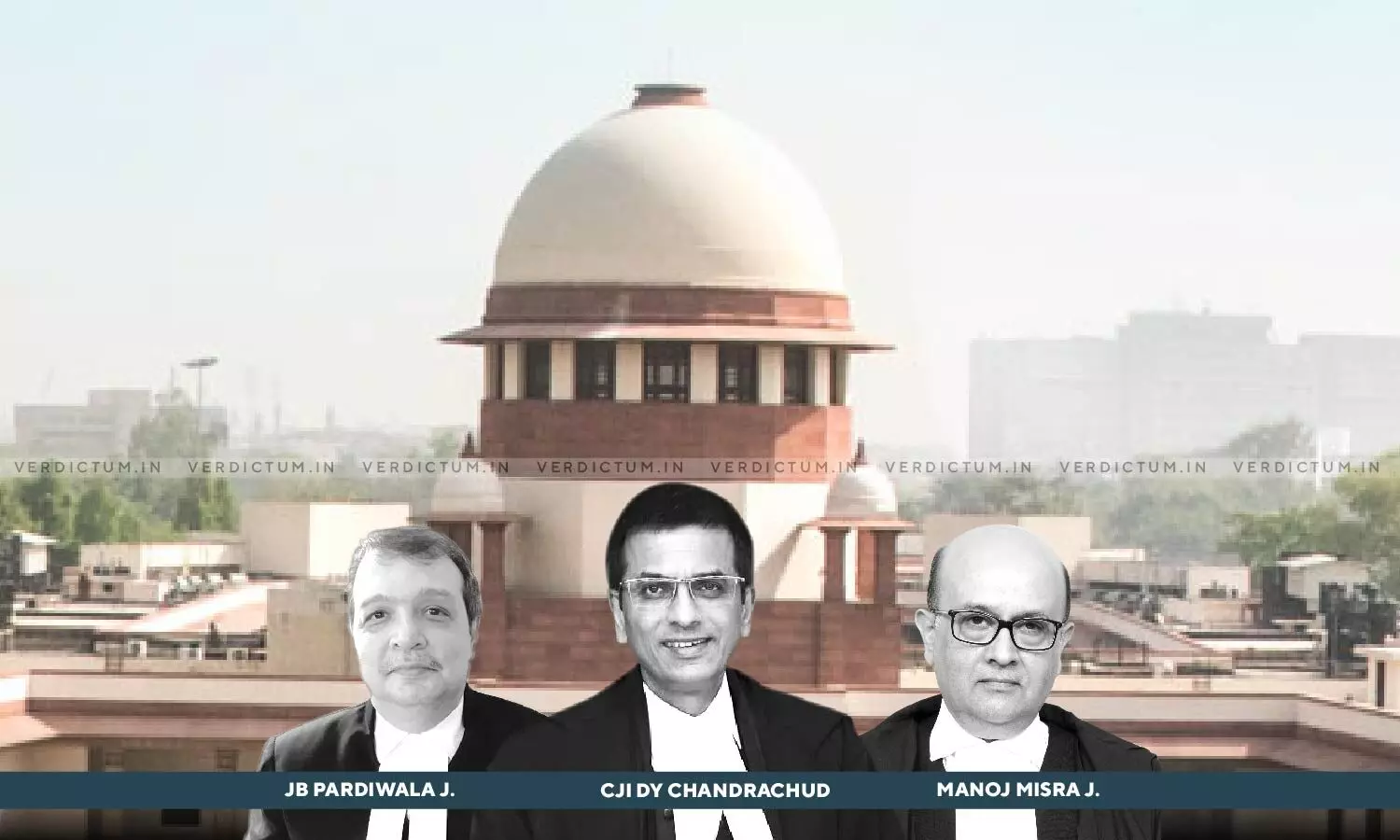
While Considering Application Seeking Appointment Of Arbitrator, Court Can Examine Whether Condition Stipulated In Arbitration Clause Is Arbitrary & Violates Article 14 of Constitution :SC
 |
|The Supreme Court observed that while considering an application under Section 11(6) of the Arbitration and Conciliation Act 1996, the Court can examine if the condition stipulated in arbitration clause is arbitrary and violative of Article 14 of the Constitution of India.
The bench of Chief Justice DY Chandrachud, Justice JB Pardiwala and Justice Manoj Misra observed thus while considering an application seeking appointment of the arbitrator.
In that context, the court said: "The vociferous submission on the part of the learned counsel appearing for the respondent, that this Court while considering an application under Section 11(6) of the Act 1996 for the appointment of arbitrator should not test the validity or reasonableness of the conditions stipulated in the arbitration clause on the touchstone or anvil of Article 14 of the Constitution, is without any merit or substance."
Counsel Sidhant Goel appeared for the petitioner, while Counsel Amit Anand Tiwari appeared for the respondent.
In this case, a Swiss design consultancy firm, had initially contracted with Uttarakhand Project Development and Construction Corporation Limited (UPDCC) to provide consulting services for a hydroelectric project.
Later on, this project was transferred to the respondent, a government-owned corporation in Uttarakhand, through a tripartite agreement. Disputes arose between the two parties, prompting the petitioner to initiate arbitration proceedings by sending a notice to the respondent, requesting the appointment of an arbitrator as per the arbitration clause in the contract. However, the respondent reacted by terminating the contract, citing alleged failures to meet work and contractual obligations. The petitioner sought the appointment of an arbitrator to address their grievances.
The dispute before the Apex Court revolved around the validity and enforceability of the arbitration clause, specifically concerning the stipulation that the petitioner must deposit 7% of the arbitration claim as security.
The Apex Court stressed that the concept of “party autonomy” as pressed into service by the respondent cannot be stretched to an extent where it violates the fundamental rights under the Constitution. In that context, it was further said that, "For an arbitration clause to be legally binding it has to be in consonance with the “operation of law” which includes the Grundnorm i.e. the Constitution. It is the rule of law which is supreme and forms parts of the basic structure. The argument canvassed on behalf of the respondent that the petitioner having consented to the pre-deposit clause at the time of execution of the agreement, cannot turn around and tell the court in a Section 11(6) petition that the same is arbitrary and falling foul of Article 14 of the Constitution is without any merit."
The Court also placed reliance on the case of IOC vs Raja Transport Pvt. Ltd., to hold that in situations where circumstances create reasonable doubts about the independence and impartiality of the nominated arbitrator, or when other factors justify the appointment of an independent arbitrator, the Chief Justice or their designate may, while providing reasons, set aside the designated arbitrator and appoint an alternative arbitrator.
It was further stressed that it was a settled position of law that there can be no consent against the law and there can be no waiver of fundamental rights. The Court also highlighted that the primary objective behind amending Section 12 of the Arbitration and Conciliation Act, 1996, as per the recommendation of the Law Commission, and the spirit in which it was amended by the Amendment Act, 2015, was to ensure the neutrality of arbitrators.
In light of the same, the Court reached the conclusion that the application must be allowed. The Court also appointed a Former Chief Justice to act as the sole arbitrator.
Cause Title: Lombardi Engineering Limited vs Uttarakhand Jal Vidyut Nigam Limited
Click here to read/download the Judgment